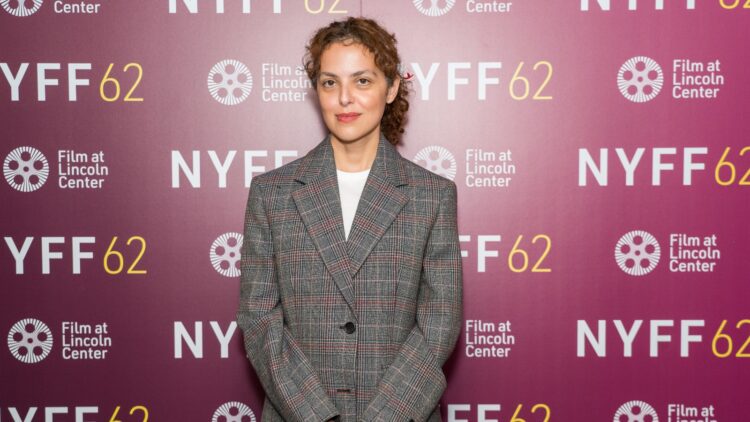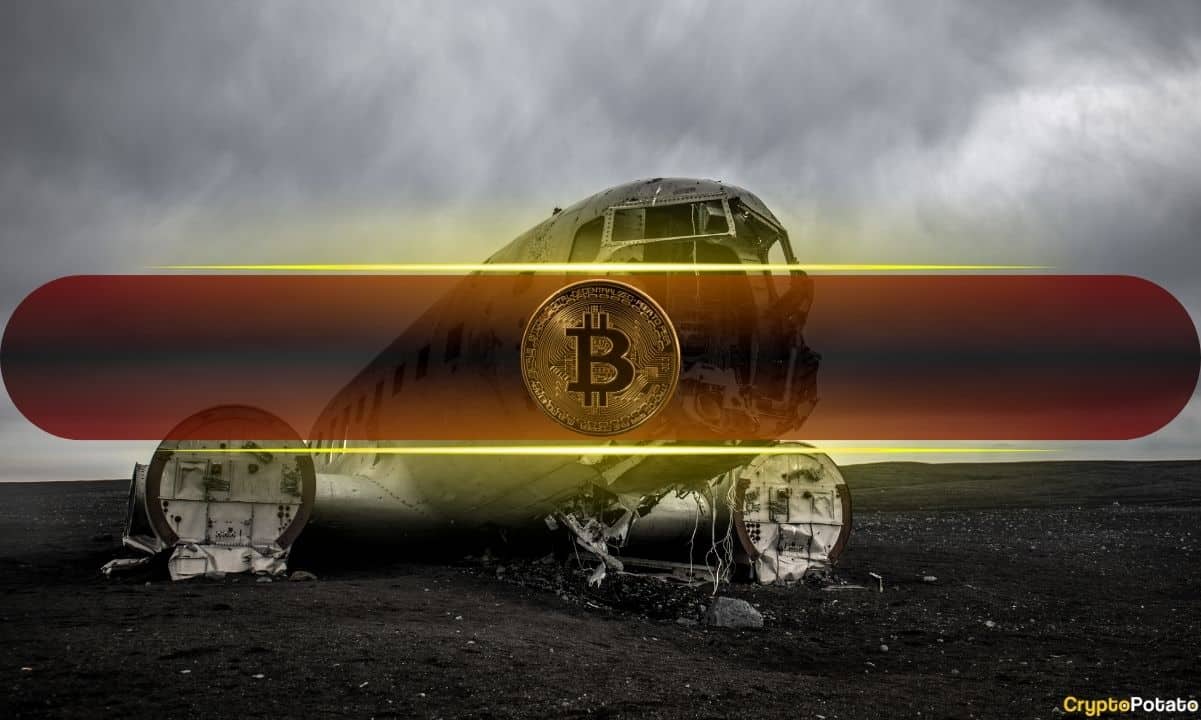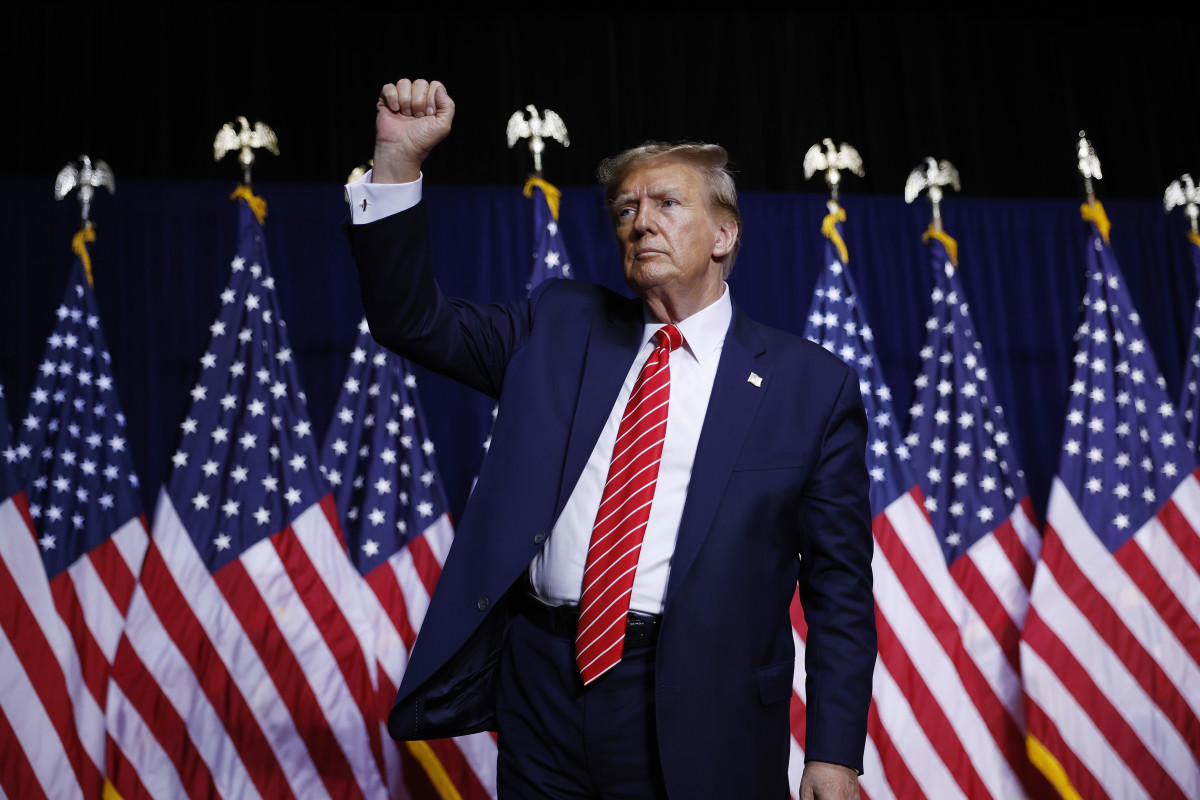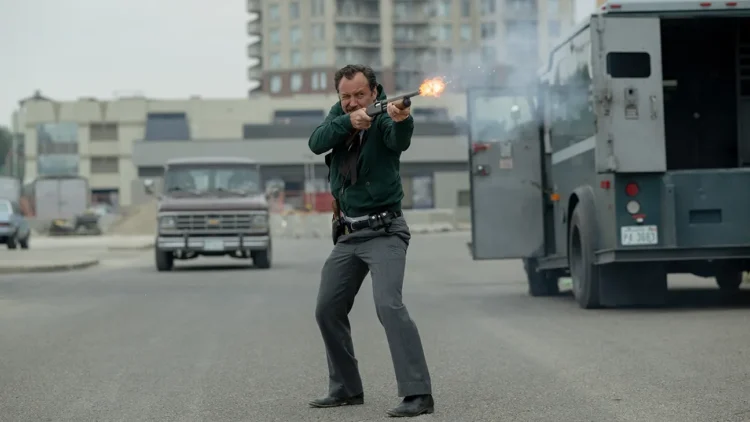With only two feature films, Georgian writer-director Dea Kulumbegashvili has collected some of the highest accolades in the film world. Her astonishing debut Beginning received a Cannes label at the festival’s canceled pandemic edition and won four of the seven competitive prizes in San Sebastián that same year, including the Golden Shell for Best Film. April, her much-anticipated sophomore feature about Nina, an OBGYN who secretly helps women in her village with unwanted pregnancies, premiered at Venice last month and won its Special Jury Prize.
The film screened at the recently concluded Filmfest Hamburg, where we spoke with her about instinctive filmmaking, plans for a trilogy, and the prospects for a Georgian New Wave.
The Film Stage: Your feature debut Beginning had an incredibly successful festival run in 2020. How did it feel to have your “breakthrough” during the pandemic? Did you ever consider delaying the film?
Dea Kulumbegashvili: I don’t usually look at things as “breakthroughs.” Until the day a film premieres, as its director you have been working on it for years. And being a director for me is being convinced in your vision while dealing with tremendous insecurities because you feel very isolated in the process. With Beginning, somehow I didn’t even notice how it all happened because it happened so quickly. We premiered the film and suddenly received these awards. For me, I only started to reflect on it maybe a year later. Also, because it was during the pandemic, I was not able to travel to the festivals personally, could not talk to the audiences, so for me the way it happened was: I finished the film, people were excited and e-mailed me, but I was somehow not connected to the whole experience on a personal level.
I didn’t consider delaying the film because… well, the producers didn’t want to delay because they obviously had a lot of responsibilities towards the financiers; they said we needed to show the film this year. It was also important to me because, for me, films are made to be seen, so if this film is finished, why would I save it? Just to walk the red carpet?
Luca Guadagnino was the jury president at San Sebastián the year you won the top prize, and served as a producer on April. What was the experience like working with him?
First of all, I don’t know how Luca manages to do everything that he does. I work slowly in general and I think it was a surprise for him to see how I do only one thing at a time. He was very helpful and for me was not just a producer on this film. He was there like a… guarantor for me against people who would doubt my process. There was a lot of doubt at times because I was taking my time and taking risks. You know, when they give you money, as a director you don’t always understand how much freedom they’re giving you. And Luca’s involvement was really invaluable in that regard.
He was protecting me, which is something I really appreciate. In times of crisis he would step in and help me raise more money for reshoots, for example. He, as a director, really understood what’s difficult for me, and he was also always there to help me communicate. I think that’s not usually how producers work; it was more like help from one director to another.
In an interview you did with Guadagnino for Beginning, you talked about the first image you had in mind when you started work on the film. Was there such an image, a starting point for April?
Yes, for me it was the image of driving through the endless landscape in the blue hour. When I was working on Beginning we would usually drive back to the hotel in the evening and would see this endless sky. That was my first image for April: driving through a spectacular landscape with nature being so close it was almost hitting your face. How there was no space to look away. That was the first image and feeling I had for the film. I really wanted to convey that feeling.
So nature is a part of the DNA of the film.
Yes it is. Sometimes I think I may be incapable of making an urban film. But then I think cities have their own landscape, so perhaps I just need to look at them differently.
Based on your first two films, you struck me as a highly instinctive filmmaker. How much do you think your filmmaking is guided by instincts?
I think I’m a good director in terms of technicality, but that can be a trap. I really believe that the moment you abandon any sort of reasoning, that’s when cinema begins. I always try to get to that point. So I do prepare a lot, I do a lot of research, and technically I know every little detail, but then I need to get to the point where I feel free of any preconceived understanding of cinema, because that’s boring. To me it’s boring to impose intellect over the filmmaking process constantly, because then I really limit myself and cinema is so much more. To me, becoming a better director is to become less-visible in the process. If I manage to create the right circumstances and step back, I do believe that cinema will happen.
Meanwhile, when we look at something like the extended, static abortion scene, it let me think that it’s planned, staged, and shot exactly as you imagined––like, down to the millimeter.
You know what happened in that scene? It was incredible. We started to shoot and it was very emotional. I made most of the team leave the set; there were only three people in the room. I believe that with this intimacy you really start to feel what’s happening in front of the camera and you need to create those circumstances. And then the actress started to have tears because she really started to embody that character, which you never see because her face is not in the shot. And at that moment, because we were shooting in this house in the village, a herd of cows walked by for, like, ten minutes. It was incredible because we could hear their bells, even their heavy breathing. And because we were so prepared, we could record and use that sound, because to me this emphasizes how life goes on.
What I’m saying is: it’s the preparation that allows the unexpected, or cinema itself, to happen. Sometimes when things happen you’re not able to film them, and that’s when you fail as a director. To me, the biggest horror is if I’m fixated on something preconceived, when next to me something very powerful happens and I’m not ready to film it. I’ve seen that with my friends, which I always find terrifying.
Something else that struck me while watching your films is your ability to craft images that are viscerally powerful. How do you go about creating imagery that makes a visual impact?
I don’t think in those terms. Image, for me, is a very strange thing; it’s unreliable. No matter how specific it is, it always is something that opens a window into the viewer’s mind, something that is theirs only. I can’t control what happens with the viewer; it’s not, like, a precise text. Despite how much control I may have over an image, it’s still just a window into something that is totally uncontrollable. So I always just orient on myself. I create images for myself.
For example, without going into details, what’s the idea behind the opening scene of April? Did you always know it’s going to be the opening?
You mean the birth scene?
No, the actual first sequence of the film.
I actually wanted to start with the birth scene. What happened was: after I shot the scene at the hospital I understood that if I opened the film with that scene, it would have a shock effect. And I don’t want to shock the audience––ever, actually. There are parts of my films that are probably shocking to viewers, but it’s not my intention. And if the birth scene had opened April, it would have been more of a shocker than I intended it to be. I didn’t want to diminish the scene that way. Like, “Oh, my God––look what that director did!” I mean, I didn’t do anything anyway. I just placed a camera.
Well, if not shocking, the opening sequence still took me by surprise.
Initially that scene was supposed to come later in the film. But then I felt, “No, it needs to come earlier.” I write my own scripts, and the whole process is very precise, but during that process it also happens that you discover certain mistakes––that something was not the right instinct. It’s a process I really enjoy. So I realized that scene needs to come earlier. Because what you see there is the character of Nina, and I want the audience to be really rooted in her experience. That’s why I changed it to be the opening scene.
Photo by Colleen Sturtevant. Courtesy of the 62nd New York Film Festival.
There’s another scene that involves Nina and a boy washing cars at the side of a road. I find everything about this scene interesting, from the way you frame and shoot it, to what you choose to show or not show the audience. Can you talk about the thought process behind a scene like this?
Well, Nina’s almost like a predator there. No matter how vulnerable women are in my films, there are also men who are vulnerable. The boy in this scene, I know him and his whole family in real life. He carries so much vulnerability. He’s really from this village. I don’t need to add his entire backstory in the film. There’s something extremely vulnerable about him when you see him on screen. And I wanted to show there are also situations where Nina oversteps and becomes a predator herself. Which is also tragic to me, because for her to seek some sort of intimacy, she needs to become predatory.
This car-washing place is actually there. When we were coming back from the village, my cinematographer would sometimes stop the car there to have it washed. I would listen to how loud it was. He took a picture there once and it was beautiful. And I thought we need to shoot the scene here and I purposefully put the sound on, which the sound team did not like, and in post-production I remember the sound team arguing with me about how we should hear what the characters are saying. But no, in real life you’d hear nothing with that noise. Also, it really doesn’t matter if you hear what they talk about. I hate it when the audience knows everything. This notion in contemporary life that we have power over everything around us, especially with regard to the images that surround us, it’s just so not true. I don’t want the audience to feel empowered in that way while watching my films.
Did you shoot any scenes that did not end up in the film?
There is one scene that’s not in the film and it’s honestly a huge pity. I’m not going to say what it is but it’s a long, beautiful scene, perhaps one of the most beautiful I’ve ever shot. That happened on Beginning as well. I shot a scene with the main character and realized that scene was itself an entire film. There was no space for it anymore. As a director you can overdo it like that sometimes, which is also a sort of failure. It’s the same with April: the scene is, in a way, too much. But maybe I can go back to it in my next film. I do believe all my films are connected somehow.
In a general sense, your first two films are both portraits of women in crisis. Are there plans for a trilogy?
There was a plan for a trilogy for sure; I wanted to make at least three films in the place where I grew up. Unfortunately I cannot do it now. Because of the political situation I can’t really go back now or make a film there. I don’t know if it’s going to happen because we can’t predict if or when the situation will be better. I actually don’t think anybody would be able to make films in Georgia in a few years, unfortunately.
Is it a censorship type of situation?
Yes, they just introduced a law protecting family values against what they call “the LGBTQ propaganda.” They also introduced a law about foreign interference, which is like a copy of Russian laws. I’ve always adopted a very open way of working with my collaborators. If a gay couple works on my film, they should be able to stay in one room like any other couple. I really believe in certain values because I don’t want the team that I work with to be hiding. I don’t want my cinema to be theoretical in the sense that we’re only fighting for certain values in films and in real life I can’t provide fair conditions to my team.
I was just going to mention that in recent years, a Georgian New Wave seems to be happening with several notable filmmakers being celebrated at international film festivals––including yourself, Levan Akin (Crossing, And Then We Danced), Elene Naveriani (Blackbird Blackbird Blakberry), and Aleksandre Koberidze (What Do We See When We Look at the Sky?). I guess the actual situation is a lot less promising?
Maybe censorship will affect Alexandre a bit less, because his films may be not directly provoking the authorities. I hope that would allow him to finish his new film, because I know he’s working on one now. For Levan, I don’t think he can go back to Georgia––like, that’s out of the question. For Elene… I don’t know. I don’t know her plans but it’s very sad. And you need to understand all of us are based outside of Georgia. All of the filmmakers you just mentioned.
So it’s challenging to make films in Georgia right now.
It’s very challenging. Most of the films are co-productions these days, right? So if the involvement of any country is considered foreign interference… like, I had a lot of problems making April. I didn’t apply for any state funding; I was kind of hiding when I made the film. It was almost made in secret. The film can’t be distributed, so nobody can see it in Georgia. And as much as I want the film to be seen everywhere, I don’t want it to be seen in Georgia under the current political climate, because it’s going to be about how I advocate for abortion and all the women who worked on the film would have to deal with the same stigma and be bullied. I don’t want that to happen. So there’s this choice for Georgian directors now, like, how do you deal with subjects which you think are urgent and you need to talk about without risking the well-being of people who are making the films with you?
I hope despite the challenges, you’ll still get to complete the trilogy and make more films!
Well, I have been talking with a production company for a long time; it started even before April. It’s a company that belongs to Emma Stone, and they’ve been really wonderful. Like, very patient and understanding, also with respect to my process. I really value the way they work. We are now working on something. I cannot share any details, but it’s going to stay true to the way my mind functions.
So it will very much still be your film.
They’ve been very collaborative and very open about the process, which means a lot to me because I don’t have a lot of experience making films set outside of Georgia. Also, usually when you’re offered money to make a film, it comes with a lot of control. That, to me, would set the film on a path to failure because I don’t think I can work that way.
To end the interview on a lighter note, I wonder what types of films appeal to you as a moviegoer?
I am a moviegoer and I love cinema. I watch all kinds of films. My partner likes to watch old films, like recently on a plane he watched Pinocchio. Sometimes we would watch these films together. Cinema has a power in that it’s always unexpected how it may affect you. So I think you should not be judgmental as a moviegoer and only watch certain types of films, because you never know what any film would do to you emotionally.
April screened at Filmfest Hamburg and 2024 New York Film Festival and will be released by Metrograph Pictures in 2025.
The post “Nobody Can See It In Georgia”: April Director Dea Kulumbegashvili on State Suppression and Luca Guadagnino’s Protection first appeared on The Film Stage.






























